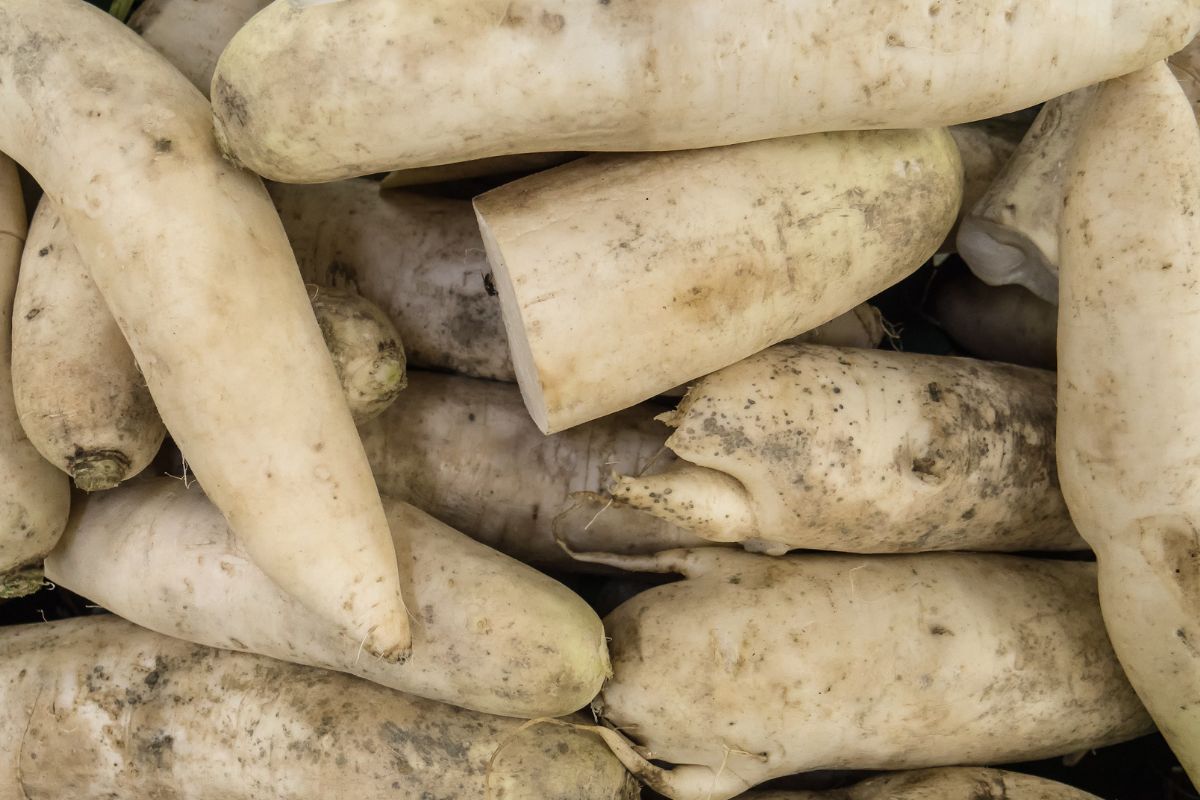
DISCOVER THE HEALTH SECRETS OF JAPAN'S DAIKON RADISH
You have probably seen this vegetable in the store many times, but maybe you never wondered what it really is. It’s worth catching up because daikon—Japanese radish—is not just a trivial curiosity from the Land of the Rising Sun but also an excellent source of health benefits that are worth knowing.
Japanese cuisine is considered the healthiest in the world—alongside Mediterranean cuisine, with which it has a lot in common. The Japanese eat healthily, live long, and remain fit into their later years. Sea fish, to which the descendants of samurais are both sentimentally attached and have good access, is just one of the ingredients of this success. The second is the fermentation process often used in their cuisine, and the third is vegetables, among which we find the daikon radish.
Japanese radish — a short characteristic
It is said that in Japanese cuisine, there are no accidental ingredients. The cooking masters there select products carefully, loving tradition and culture. Daikon radish has been consumed in Japan for centuries, and its taste and characteristic spiciness are supposed to signify having something like a soul. Well, that’s what they used to say. Today, we call it something different: nutritional value. And indeed, there are many of them.
However, before we explain what we gain from regularly consuming Japanese radish, let’s discuss the basics. Daikon is a vegetable that grows to a length of about 1 metre, but its weight varies greatly. There is a record in the Guinness World Record for a radish that reached... over 31 kilograms—quite a lot.
Read also:
The essential guide to chubritsa: A Bulgarian culinary secret revealed
Daikon for health
Japanese radish, from which the Land of the Rising Sun chefs prepare salads, pickles, and the so-called tsuma, i.e., sushi decoration, has an exciting taste and many nutritional values. A high content of B vitamins and ascorbic acid characterizes Daikon. It also contains calcium, sodium, magnesium, potassium, and iron minerals.
Japanese radish also shows antibacterial and antiviral properties. Phenolic compounds help keep the skin young and reduce the risk of cancer, and unique enzymes accelerate the digestion of fats and carbohydrates. Taking this into account — as well as its high-fibre content — a straightforward conclusion can be drawn. Daikon is the ideal vegetable for weight loss!
Read also:
Discover the gut health benefits of Valencia’s traditional horchata
Tempeh takes center stage: Uncovering the health benefits of this Indonesian soy marvel
2024-07-02T17:55:23Z dg43tfdfdgfd